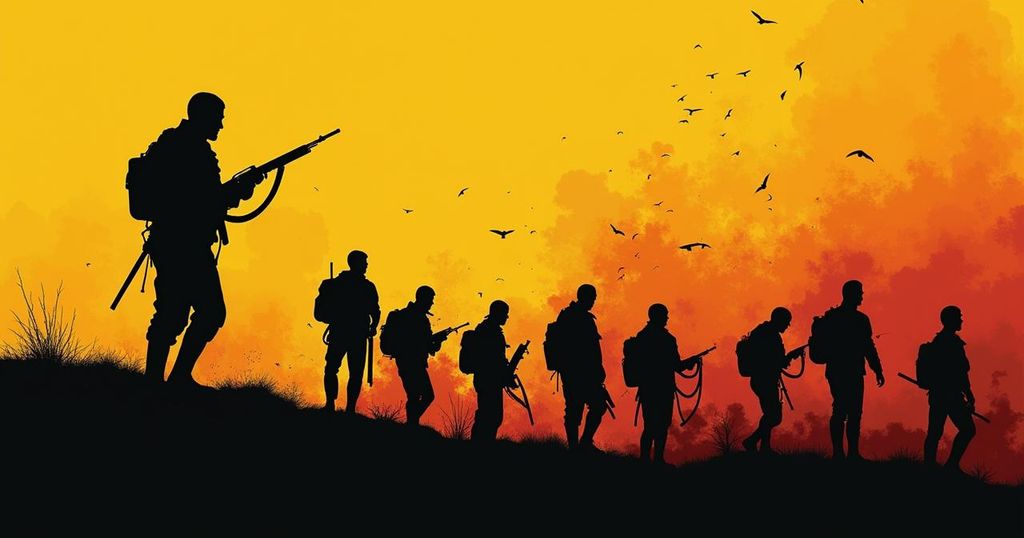Hezbollah remains defiant in the wake of the assassination of its leader, Hassan Nasrallah. Despite suffering significant losses due to Israeli strikes, Hezbollah officials claim to have restored vital communications and missile capabilities, preparing for a counteroffensive against Israel. This reflects a marked shift from previous strategies of restraint to one of aggressive retaliation, as the group seeks to assert its military strength following Nasrallah’s death.
Following the assassination of its leader, Hassan Nasrallah, Hezbollah remains resolute and ambitious about its capabilities despite facing considerable losses from Israeli military strikes. Israel’s operations have significantly impacted Hezbollah by eliminating numerous leaders and causing substantial casualties among its ranks; however, Hezbollah officials assert that they have largely restored their communication systems and retained most of their advanced missile capabilities. They emphasize a commitment to retaliate vigorously, disregarding previous constraints on their methods of combat. Notably, they claim that the assassination of Nasrallah has erased any reservations about escalating their response against Israel, with promises of a transformed, more aggressive approach to warfare. In recent developments, the Israeli Defense Forces reported destroying a major portion of Hezbollah’s missile infrastructure during extensive aerial bombardments, while U.S. officials warned of a possible ground incursion into southern Lebanon to dismantle Hezbollah’s operations further. Nevertheless, Hezbollah fighters, including seasoned veterans, express confidence in their operational readiness and the capacity to execute a substantial counteroffensive, indicating a shift from their previous strategy of restraint. Hezbollah’s internal messaging has shifted; its officials no longer advocate for holding back but instead perceive the current situation as necessitating a total engagement against Israel. The sentiments expressed by Hezbollah fighters reveal a profound transformation within the organization’s operational mindset in the wake of its leader’s death, suggesting an imminent increase in military engagement with Israeli forces.
Hezbollah, a militant group formed in response to Israel’s invasion of Lebanon in 1982, has endured significant losses in a recent escalation of conflict with Israel. The assassination of its long-standing leader, Hassan Nasrallah, marks a crucial turning point for the group, which has historically relied on his strategic guidance for military operations and political solidarity. Over the past two weeks, Hezbollah has faced relentless attacks from Israel resulting in the deaths of key leaders, as well as thousands of injured fighters. This situation has prompted reevaluation within Hezbollah regarding its operational tactics and responses to Israeli aggression, sparking a discourse about the future of its engagement strategy in the regional conflict landscape.
In summary, Hezbollah is undergoing a critical transition following the death of Hassan Nasrallah, reflecting a renewed commitment to confront Israel aggressively. Despite the considerable challenges posed by recent Israeli military actions, including extensive airstrikes and the loss of key leadership figures, Hezbollah officers maintain confidence in their combat readiness and resilience. Their rhetoric suggests a shift towards a more confrontational stance, effectively marking the beginning of a new phase in their conflict with Israel, characterized by a willingness to fight without previously observed restraints. The coming period will be pivotal in determining the extent of Hezbollah’s military response and its implications for the broader regional dynamic.
Original Source: www.csmonitor.com






